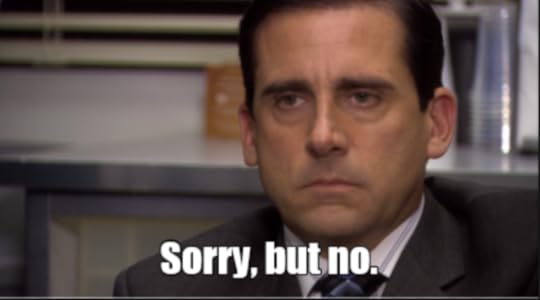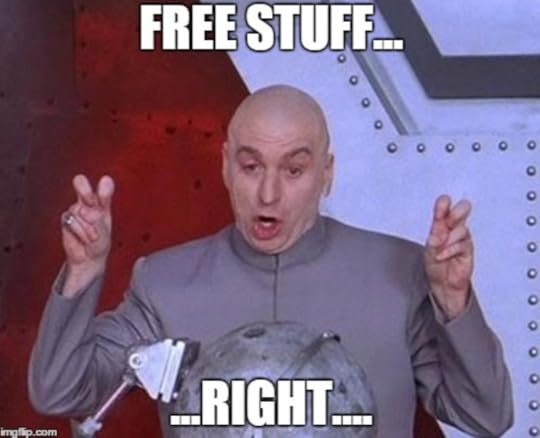Pay the Bookseller! Why C.E.O. James Daunt Won’t Save Barnes & Noble

Pay the bookseller. Novel idea. Sort of like my whole idea that we should pay the writer. Alas, every time I study the book industry, no one in charge seems to understand why paying those pivotal to your business is kind of a big deal.
I was going to blog on something else, but this morning I awoke to the New York Times article:
For me? This is not CHAPTER 2, it is a steaming pile of Number Two.
Call of Doody: Battle of the Books

First of all, this NYT title is grossly inaccurate and misleading. Daunt might have rescued the UK chain Waterstones, but his rescue plan had very little to do with directly combatting Amazon.
In fact, it was precisely because Daunt didn’t engage with Amazon that Waterstones managed to regain financial footing.
One of the single largest business decisions that killed Borders—as well as Barnes & Noble—had to do with crap tactics. Both giants engaged the competition (Amazon) on terrain where their adversary held almost total dominance.
*throws history book at screen*
The Internet reminds me of Russia. Only those born to it prosper and only fools believe they can win a war against the harsh elements they’ve never studied let alone mastered.
Bezos was only too happy to let Borders try to invade. Amazon hunkered down, and Borders ended up eating all their metaphorical horses before they finally starved.
Did B&N learn? Nope. And the oil froze in their Nooks.
Maybe y’all think I’m being melodramatic, but…
In my recent blog post Amazon Publishing: The Road to Conquest & How Bezos Razed New York, I mentioned how Borders was struggling but doing okay, until they broke the deal they’d made with the devil Amazon and got the bright idea to go it alone on-line.
Can anyone say, ‘Waterloo?’
Similarly, Barnes & Noble—apparently visited by the same ‘Bright Idea Fairy’—launched the Nook, and hemorrhaged over a billion dollars.
Why? Because they didn’t learn from Borders and believed they could win a land war in Asia book war on-line.
*pictures Amazon sitting inside near roaring fire drinking vodka and playing checkers*
What Daunt Did Well

So let’s just get some facts straight. C.E.O. James Daunt didn’t rescue Waterstones because he took on the big, bad Amazon. Amazon wasn’t why the Waterstones stores were bleeding out.
Daunt went head to head with traditional publishers. Publishers were killing the bookstores.
Daunt forswore the $38 million in ‘co-op fees’ which gave the publishers the power to display the selection of books they liked and wanted to sell. Problem was that what the publishers wanted to sell rarely coincided with what customers wanted to BUY/READ.
The co-op fees, enticing as they might have been, were undermining sales overall. Daunt was savvy enough to appreciate that bookstores wouldn’t survive if they kept putting the publishers’ desires ahead the customers’.
Daunt also gave Waterstones a heavy makeover. They didn’t all look alike. Some were big, some small, some didn’t have the name Waterstones at all.
***Went a little Dr. Seuss there.
Cutting the Co-Op

The co-op system was an albatross. Publishers were smitten with their Buy Two Get the Third Free but, according to Daunt, customers rarely found the third book they wanted (FREE or not).
Waterstones, at one point, was returning TWENTY PERCENT of their inventory for remaindering.
For those who don’t know how traditional publishing operates, the physical bookstore system is consignment-based.
Publishers send books they believe will sell. Booksellers, however, eventually return unsold books to publishers at the publishers’ expense.
But also at the booksellers’ expense because failing to sell TWENTY PERCENT of your inventory is—to use a fancy business term—bad juju.
Bookstores lose money, too, because they have to pay their staff to rip off covers and box them to ship back to the publishers. Time that could be better used selling books.
With Waterstones shipping back roughly a FIFTH of all inventory, this translated into millions of dollars in losses (for both parties) every year.
To continue was madness. Got it. Yay James Daunt.
Daunt vs. Traditional Publishing

Daunt finally convinced the publishers to work with him and offer a discount on all the books, not just those hand-selected for specialness.
He then started changing up all the stores, making them resemble the smaller independent stores of yesteryear.
Each location had unprecedented control over which books they stocked and where.
“He’s (Daunt) essentially created a series of independent bookstores with the buying power of a chain.”
Tom Weldon, Penguin Random House U.K.
After untangling the co-op albatross from around Waterstones’ neck, the chain dropped from TWENTY PERCENT of inventory shipped back to publishers down to FOUR PERCENT.
***Currently, according to the NYT article I’m referring to today, Barnes & Noble averages TWENTY to TWENTY-FIVE PERCENT of inventory is returned to the publishers.
#OUCH
The Oblique Attack: Atmosphere
Daunt ditched the co-op payout, empowered the individual stores to curate their own inventory, thus making each location highly unique and individualized. For the most part, each bookstore’s inventory currently reflects the community it serves.
Waterstones also made a big deal out of making their bookstores a place people wanted to go and maybe even stay awhile.
This is probably the only area I’d grudgingly concede Daunt ‘fought’ Amazon.

Because for me, the fight really hasn’t ever been with Amazon. Bezos, from the beginning, wanted to create a system that catered to readers. That a book would become popular because readers enjoyed it.
This idea that a small group of of intellectually isolated elites could choose what the rest of the country wanted to read was absurd.
For those isolated elites to then insist the books they enjoyed should comprise most of a bookstore’s inventory, despite regional, cultural and linguistic differences? Height of hubris.
And we’re somehow shocked that B&N returns an average of 25% of its stock?
So, with everything thus far, I agree a thousand percent that Daunt did an excellent job.
But here is where we begin to part ways.
Who is Achilles James Daunt?
When you open , there’s this smart picture of James Daunt next to a fairly misleading title (as we’ve already discussed).
The only direct jab at Amazon is in reference to creating stores with atmosphere as opposed to a quick on-line transaction.
Whatever. They DO know Amazon is opening stores that are catering to local tastes, preferences and offering all sorts of cozy feel-goods and extras, right?
Right?

Anyway.
The first third of the article is inspiring, and refreshing. After ten years ranting on my blogs, it’s nice to see someone making sound business decisions for a change.
I was impressed that Daunt had no problem going head-to-head with the major publishers. I liked that his new approach lowered waste, increased profit, and that he’d streamlined staff to allow time for the stores to recover.
Then we get to the second part of the article….
*heavy sigh*
The article gushes on and on about Daunt, how he’s the son of an ambassador, how ‘he joined the corporate finance department of J.P. Morgan in Manhattan, shortly after graduating from Cambridge University in 1984.’
Um, all right. Interesting stuff.
How though he loved the money, but ‘his wife, Katy Steward, recoiled at the prospect of 40 years of dinnertime stories about stock swaps and high-yield bonds.’
Ok. Yeah, sounds like a total drag.
We learn that the very wealthy Daunt has an unusual approach to his globe-trotting family vacations that he takes with his wife and two children.
How they’ve backpacked through Romania, Ethiopia, and Cuba blah blah blah.
All well and good. I found it interesting and the article would have been fine had it ended here.
But it didn’t.
For those who kept reading, this pseudo-personal profile gave the last third of the article a…’Let them eat cake’ vibe.
Same $#!&, Different C.E.O

Borders died because they got greedy. Barnes & Noble imploded because of greed. Traditional publishing (namely the multi-media conglomerates that own them) are dying off out because of…y’all guessed it, GREED.
What all these folks have in common, was they believed they could prosper while shivving those who mattered the most.
Namely, the writers and the small bookstore chains, the indie and mom-and-pop bookstores…and finally the actual book sellers (the retail people).
The Big Six didn’t want to wait on golden eggs, so they let Borders and Barnes & Noble talk them into gutting the goose that eventually cooked all their geese.
That is a serious gaggle of @$$hattery right there.
***For those who don’t know what I’m referring to, go HERE.
Granted, Daunt’s plan is doing a ‘better’ job of getting lesser known authors in front of readers. The writers are doing ‘better’ under this new model.
Better being a relative term.
But, what I simply cannot understand is how NO ONE in charge gives a rip about the second most important person when it comes to selling books.
The retail folks on the floor and in the trenches! What is WRONG with you people?
Pay the bookseller!
When the people who work for you have to launch/sign a petition to ask for a living wage? Call me pissy, but I don’t want to hear about bougie trips to some place called…Jura.
And I don’t give a single fig about how you argued with an Italian showroom designer—at a posh London restaurant—about how the perfect angle of a book on display should be three degrees not four.
Let’s circle the wagons back to what really matters.
You Can’t Afford to Raise Their Pay?

Can anyone in this industry MATH?
By Daunt’s own admission, the percentage of remaindering has dropped sixteen percent. Sales are up, waste is down. Employees are selling books instead of boxing them.
So…why not reward them?
Daunt also agrees the starting pay is ‘rubbish,’ but then he loses me. To increase pay would cost $6.2 million the company doesn’t have.
Even though, according to the April 2nd, 2019 article, James Daunt says pay row obscures ‘decent progress’ at Waterstones via The Bookseller:
Under Daunt, Waterstones has returned to profit, reporting a pretax profit of £20m on sales of £386m in the year to end April 2018, and Daunt said the current fiscal year would see continuing improvement. But he said the business remained fragile.
Philp Jones
If I am understanding correctly, Waterstones went from dangling over the precipice of imminent bankruptcy…to now boasting $16.4 million in pretax profit on $317million in total sales.
That massive improvement can’t be leveraged to raise a paltry $6.2 million to keep the workers who made this gain happen from walking out the door?
Y’all can’t, I dunno, offer profit-sharing?

All righty.
Better Pay is Possible if a PRIORITY
Daunt, to my dismay, takes a hardline stance with the employees. His idea is that employee pay will increase incrementally over time, once someone proves they are loyal or some crap.
According to the New York Times article, Daunt claims that, “…the point is to provide an incentive to stick around, even if that means stinting on those who will not.”
Who will not.
All right, so they can’t make a living wage to eat and have a roof over their heads, but if they leave for a job that pays them better…they just weren’t committed enough?
What I dislike immensely about the Daunt Payment Plan is it’s directly related to time served. And I quote:
“We pay people more if they are committed to us than if they are only staying for a year.”
C.E.O. James Daunt
But maybe they’re only staying a year because they can’t afford to remain in a job with such low pay. A thought?
Also, let me get this straight.
If a brand new bookseller is always on time, never absent, hustles hard and sells a ton of books for only a year, he/she is still paid crap because they’ve not been there ‘long enough.’
Yet, another employee who maybe still lives at home and has no dependents, who has the means to stick around for the pay boost is rewarded…even if that person does the bare minimum to remain employed.
Ok.
Time alone is a terrible metric for measuring the value of an employee. But that’s my POV.
The Benefits of Higher Pay

Galen Emanuele’s article, Why You Should Pay Your Employees as Much as You Can articulates this beautifully. But, this is basic common sense.
First of all, better pay attracts and keeps exceptional employees. This drastically lowers turnover and the cost of hiring and retraining a continual stream short-term of replacements.
Treat your employees better…and they do a better job.
*shock face*
Don’t take it from me. Check out Fortune’s Top 100 Places to Work.
This article in Business Insider uses Costco as a prime example. Costco employees cite pay, benefits, and job security as the main reasons they love what they do.
On top of this, Costco actively creates ways for employees to grow and move so they CAN envision Costco being their career.
I can personally attest to how successful Costco is at employee retention. I’ve been shopping at three-four different Costco locations over the past fifteen years. I know the names of most of the employees…because they’ve been there for YEARS.
Costco offers premium pay and benefits from DAY ONE.
Not, ‘Hey if you’ll endure an undeclared number of years of crap pay, maybe there will be a little something shiny in it for you at a later, undisclosed date.’
How can staff be productive if they’re busy looking for a better job or worrying how to pay the food bill?
Daunt would do well to think about his priorities.

Oh, James Daunt is mad about how certain Waterstones locations have installed additional power outlets for university students ‘who consume more power than coffee.’
He has no problem with Waterstones providing free electricity to a bunch of students who are there for the free power and free wi-fi and who aren’t buying books.
“We’re playing the long game…When those students are rich and famous, they’ll buy books from us and the cost of the electricity will be paid back in spades.”
James Daunt
But taking the hit to pay employees better? Rewarding them for how far Waterstones has already come?
Trusting that better pay will make them feel valued and thus will inspire employees to be more passionate, enthusiastic and evangelical ISN’T a worthy long-game investment?
So letting students sponge off the light-bill totes doable, because they might buy books ONE DAY when they’re rich and famous (because books are like Porsches and polo ponies).
Enabling users and takers is a super smart plan, but paying employees who’ve already created value and who are only adding MORE value is a horrible business decision.

Want to Save B&N? Pay Matters
Daunt would be wise to remember that Barnes & Noble isn’t out of the weeds yet. Far from it.
If leadership continues this trend of paying/rewarding workers as little as possible—then bragging in the New York Times about exotic family trips around the world—Amazon will poach Barnes & Noble’s best talent.
How do I know this? It’s what they’ve been doing for a DECADE.
The Big Six, Borders & Barnes & Noble didn’t value the mid-list author, and Amazon happily picked up those authors and offered them better pay. As of a month ago, Amazon’s Thomas & Mercer poached Penguin Random House’s biggest author, Dean Koontz. How?
Hint: Better pay.
***Koontz is only the largest of a number of big-name authors who’ve already defected because they want to continue having a career.
Amazon is already opening physical bookstores that are smart-stocked, and offer a cozy feel and bells and whistles. Sorry, Mr. Daunt but you don’t have an edge there.
Besides, does Daunt actually believe Amazon won’t happily poach the best of B&N’s employees the same exact way?
By PAYING them more?
And this all seemed so promising.
Daunt has already demonstrated creativity and tenacity in other areas.
I believe he can use the same imagination and fire that rescued Waterstones from tanking, and use his mad skills to figure out some way to properly compensate those who grind daily in the bookselling trenches (quickly…NOT in a decade).
For what it’s worth, we writers value our bookseller advocates and cannot thank you enough. We appreciate your passion and all you sacrifice to promote reading and our books.
As for the big bosses…
No One Home

The article closes with Daunt bemoaning how Waterstones’ employees never pick up the phone. He notes that a sign of progress is when he can call a location and someone answers.
Fewer than half of the Waterstones’ locations passed this metric.
And the band played on the phone rang on…

Announcements
TOMORROW, I will be teaching Bring on the BINGE: How to Plot & Write Series. Series are a fabulous way to build a fan following AND make really excellent money (when done well). This class is 2.5 to 3 hours long (and YES, all classes come with a FREE recording).
We’re going to cover all aspects of how to write a series, the different types of series, and so much more.
As I mentioned last post, Maria Grace will be teaching Taking the Plunge: How to Write Deep POV on FRIDAY. This is TWO HOURS of professional instruction about how to ROCK Deep POV.
Treat yourself! Feel free to wear this to class 



